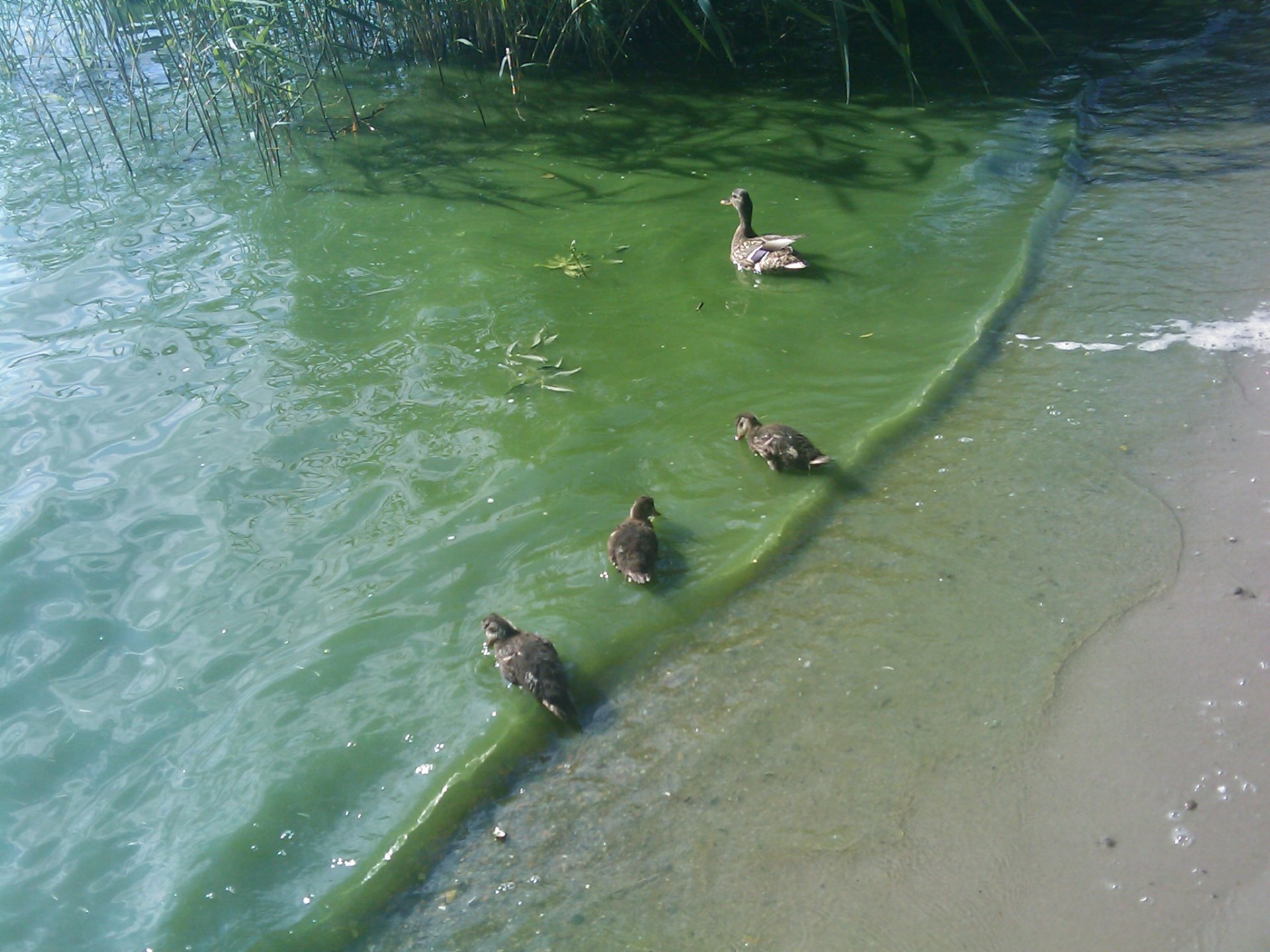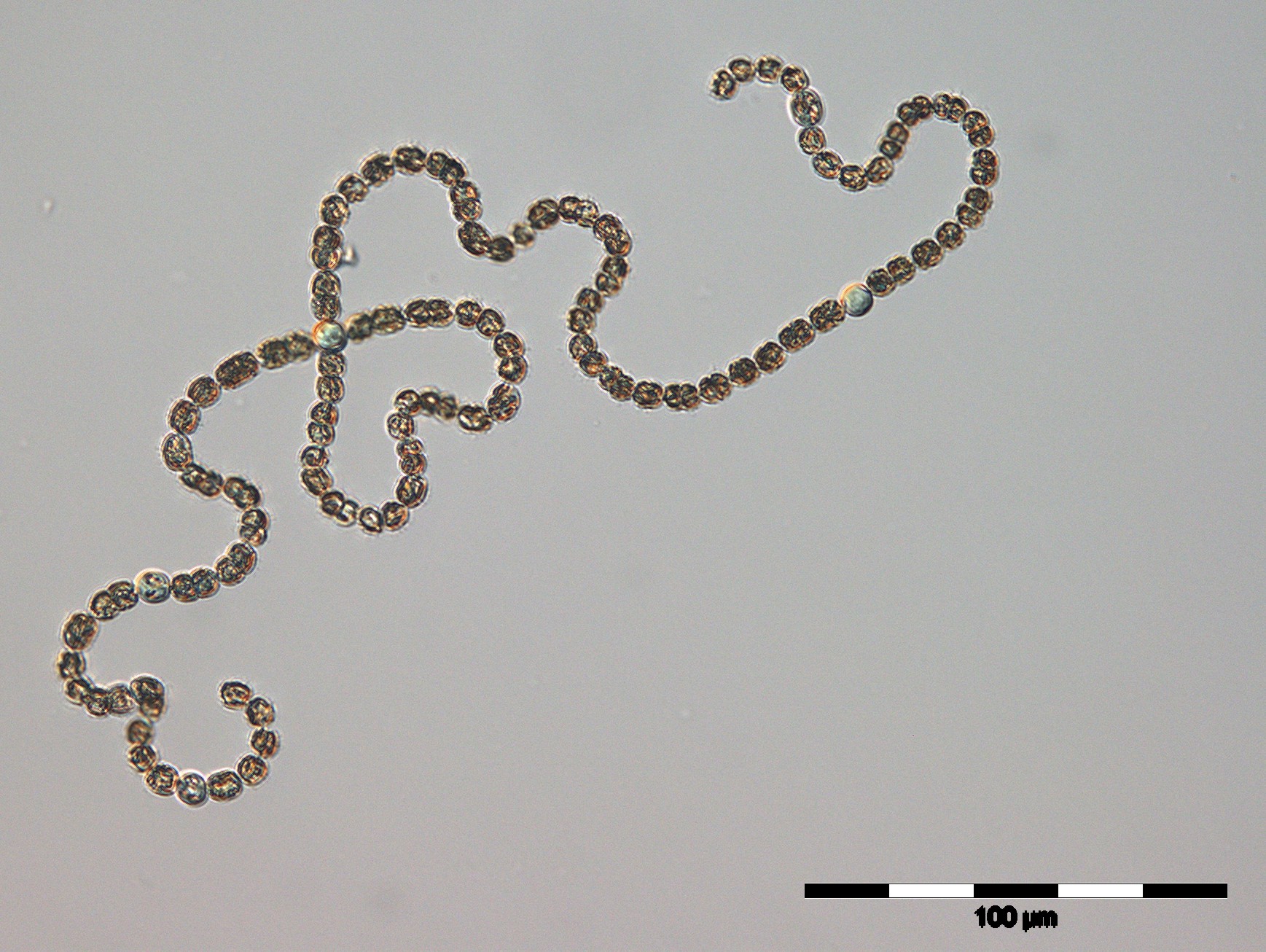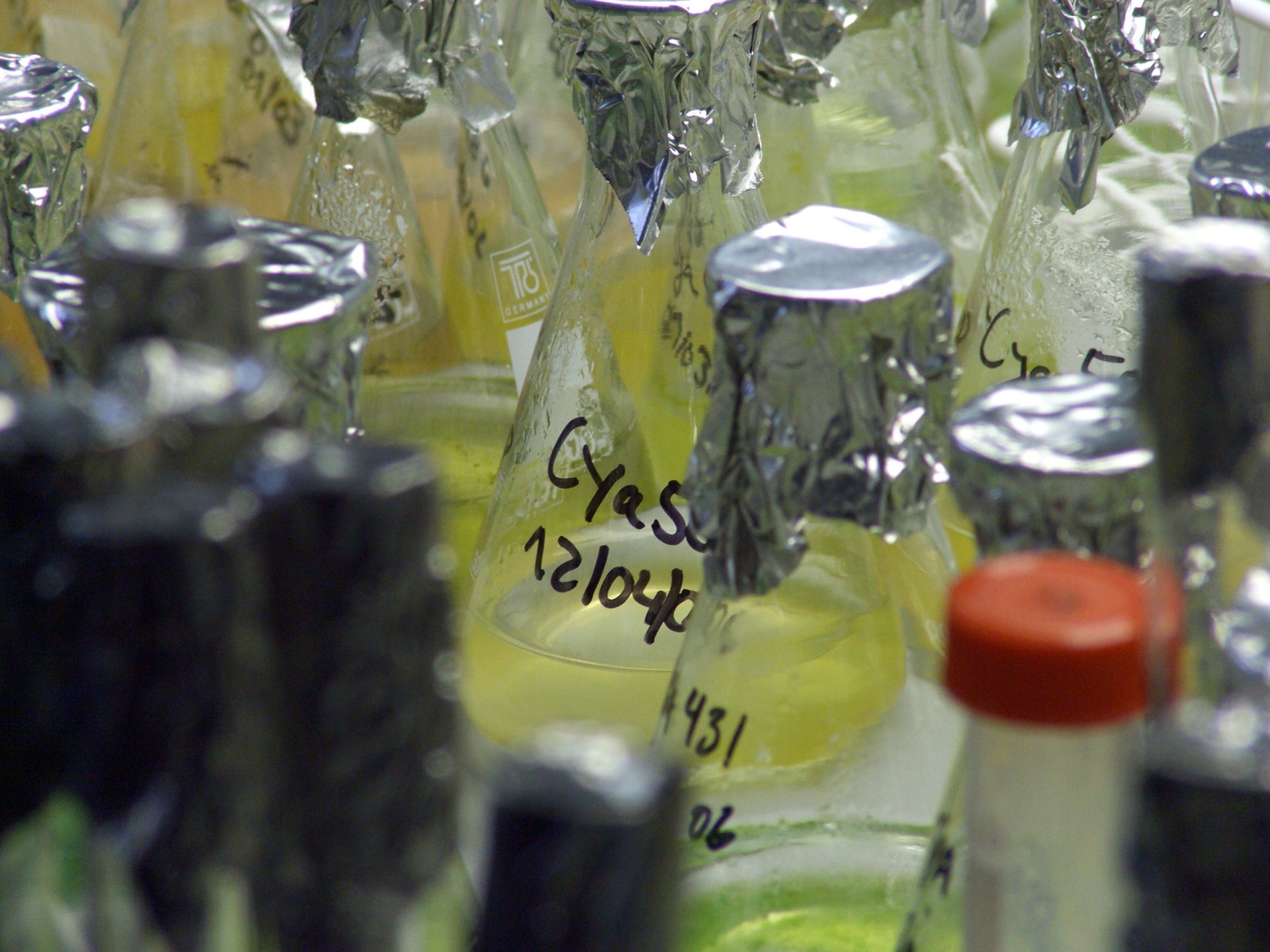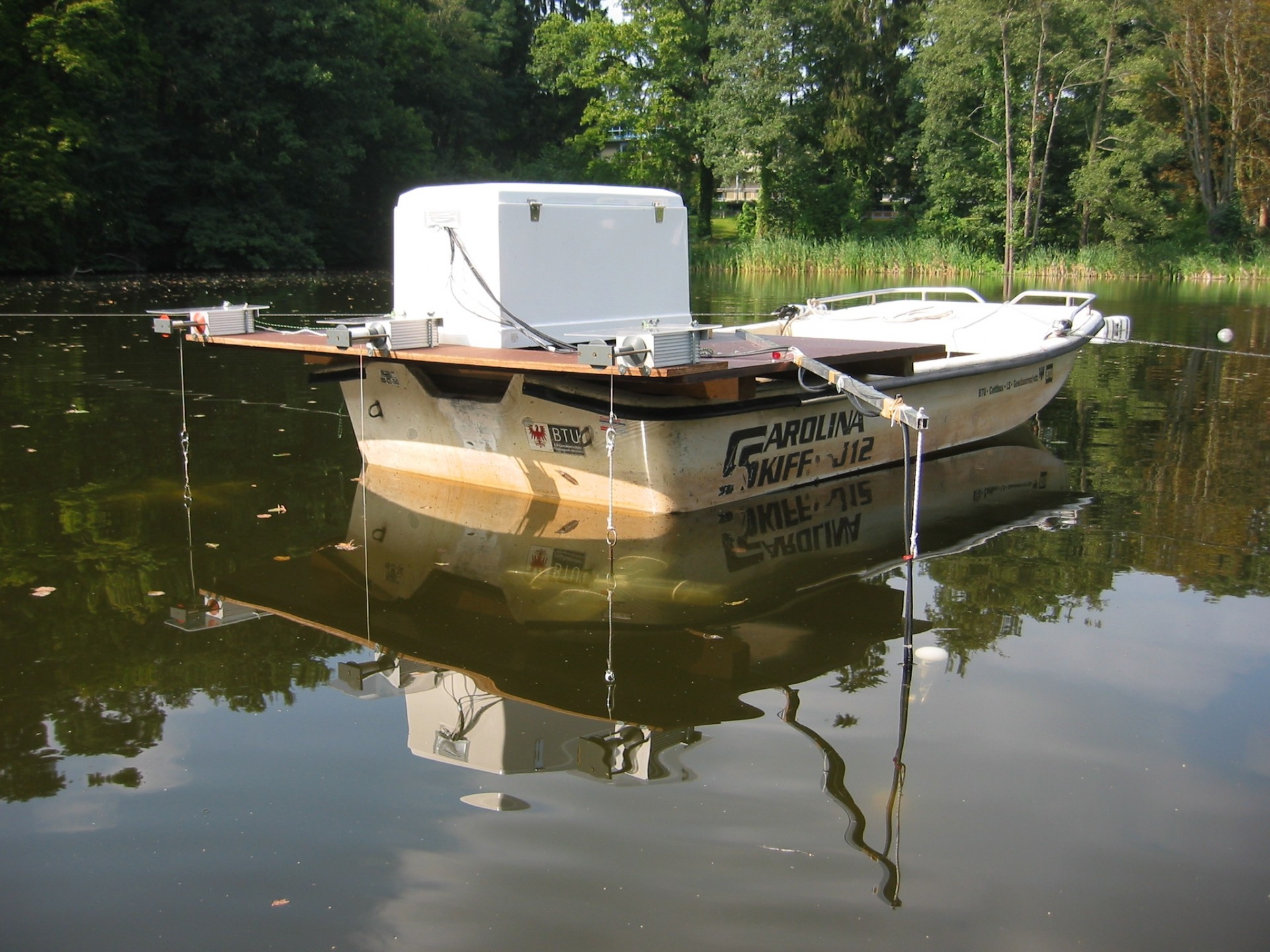Development Potential of Toxic Nostocale Cyanobacteria in the Process of Reducing Trophication and Global Warming
Research results from 2004/05 show that microcystin producing cyanobacteria ((Microcystis and Planktothrix) are declining in German water bodies whereas species of the category nostocales are on the rise – local species as much as species of tropical origin.
As a consequence of this, the concentration of microcystin is going down. The toxin cylindrospermopsin produced by nostocales, by contrast, is spreading and often exceeds the recommended threshold value for drinking water of 1 µg L-1. So far, more recent data on the existence of neurotoxins produced by nostocales are not available. Nostocales are comparatively sturdy at high light intensity and limited nitrogen supply levels because they are able to fix molecular nitrogen. Their germination is regulated by temperature and the time of germination determines the annual population size (the earlier, the bigger).
The following working hypothesis shall be tested: The combination of reduced trophication and warming of water bodies affects nostocales positively and results in a changed mixture of species and changes in toxin production. On the basis of data that will be raised on the regulation of nostocales and the production and reduction of its toxins, model based scenarios regarding its development as well as the expected toxin levels in case of a continuing reduced trophication and warming of water bodies shall be mapped out. This shall provide a sound scientific basis for formulating recommendations for water management as well as decision aids for risk assessment in water supply.
Project partner: Leibniz Institute of Freshwater Ecology and Inland Fisheries (IGB); Technical University of Brandenburg BTU-Cottbus, Federal Environment Agency (Umweltbundesamt)

Block error: "Call to a member function intendedTemplate() on null" in block type: "references"


- Occurrence of cylindrospermopsin, anatoxin-a and saxitoxins in France and implications for drinking water prodution
- Retention and Degradation of the cyanobacterial Toxin Cylindrospermopsin in Sediments - The Role of Sediment preconditioning and DOM composition
- The Development of an International Guidance Manual for the Management of Toxic Cyanobacteria
- Sorption of the cyanobacterial toxins cylindrospermopsin and anatoxin-a to sediments
- First report of anatoxin-a-producing cyanobacterium Aphanizomenon issatschenkoi in northeastern Germany





